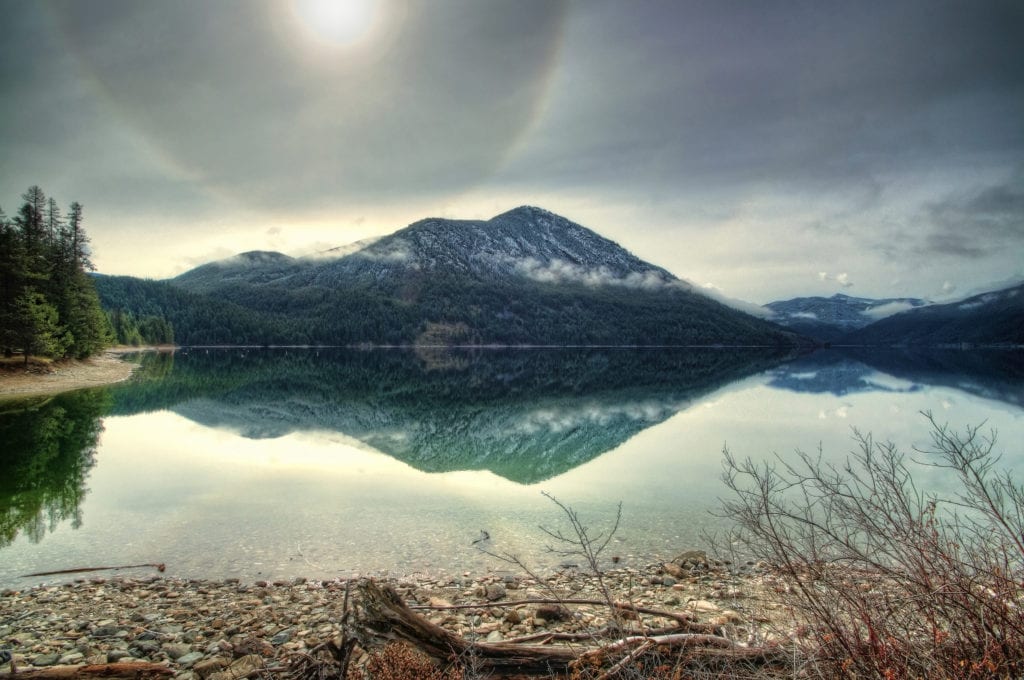
The rise of ‘Climate Change Crisis’

This is a guest post authored by Climate Change Research and Adaptation Advisor Ronda Strauch as part of a quarterly series called Climate Connections.
The Oxford Dictionary announced on November 20, 2019, that “climate emergency” is the 2019 term of the year.
“Climate Emergency: A situation in which urgent action is required to reduce or halt climate change and avoid potentially irreversible environmental damage resulting from it.”
-Oxford Dictionary
This ‘award’ by Oxford recognizes a term of cultural significance as demonstrated by its high level of use reflecting a preoccupation by English-speaking people. Since 2018, the use of the term has increased by 100-fold and it was the most written about ‘emergency’ by a huge margin in 2019.
The Guardian newspaper set policy in May 2019 to use climate emergency or climate crisis or climate breakdown instead of climate change in its reporting. Other news outlets soon followed suit. ‘Climate crisis’ is not a new term, however, and has been around since at least 1989 with the release of the “The Cairo Compact: Toward a Concerted World-Wide Response to the Climate Crisis”. So why the sudden change in language from ‘climate change’ to ‘climate emergency’ or ‘crisis’? The Guardian editor-in-chief, Katharine Viner, stated: “We want to ensure that we are being scientifically precise, while also communicating clearly with readers on this very important issue.” ‘Climate change’ sounds neutral, impartial, and doesn’t reflect what scientists are finding.
Media outlets are heeding the increasingly dire warnings of climate scientists. The American Geophysical Union (AGU), the world’s preeminent international nonprofit scientific association with over 60,000 members, celebrating 100 years in 2019, declared this month that the world is in a climate crisis. The AGU’s policy statement opens with:
“Immediate and coordinated actions to limit and adapt to human-caused climate change are needed to protect human and ecological health, economic well-being, and global security.”
Over 11,000 scientists have declared a climate crisis based on the atmospheric increase in carbon dioxide, global heating, loss of ice biomes, ocean acidification, extreme weather, and increased wildfires. This declaration is out of a moral obligation to express the urgency of this catastrophic threat. The term also embodies the recognition that there is a multitude of socioeconomic consequences from a changing climate, not just that the climate is changing, and that actions are urgently needed to prevent catastrophe.
What the change of terms indicates is that climate change is on people’s minds, more than just scientists. And why would that be? The answer depends on each individual and their experience with the climate. Perhaps it’s experiencing a heat wave and finally buying that air conditioner, seeing a sign that their favorite swimming spot is closed again due to toxic algae, losing a favorite tree to drought or disease, or knowing someone whose home burned in a wildfire. There is increasing unease that things are changing, that plants and animals, including people, are being harmed. Regressive actions of some nations have contributed to the fear that substantive actions to reverse greenhouse gas emission trends and proactively address impacts are inadequate to abate additional negative consequences. However, there is increasing momentum for doing the right thing, by the Earth and for future generations. We’ve seen a rise in youth calling for global action to combat the climate crisis over the past year, embodied by the school climate strikes campaigned by Greta Thunberg, who views climate change as a crisis for humanity.
It’s hard to find an aspect of City Light’s business that is not affected by weather and thus, climate. Consider our response to a sporadic lightning storm, managing power delivery during last February’s freeze followed by March’s melt, or planning for continued power generation as snowpack declines. We are intimately aware of the importance of weather for our fuel supply, energy delivery and demands, field crew deployment, and power dispatch and marketing. Thus, City Light has long acknowledged the importance of climate change and has been taking action to address it through: maintaining carbon neutrality since 2005, hiring a dedicated climate scientist (Dr. Ronda Strauch) to support the integration of climate science into decision-making processes, and completing the first electric utility, enterprise-wide Climate Change Vulnerability Assessment and Adaptation Plan. We routinely collaborate with the University of Washington, other government agencies, tribes, and the Department of Energy in research and projects beneficial to City Light’s climate preparedness. We are also supporting efforts to lessen the greenhouse gas emissions through programs like our Seattle City Light transportation electrification strategy, involving cars, buses, freight trucks, and even ferries. City Light recognized the urgency of addressing climate change long before the term ‘climate crisis’ came into vogue. So, rest assured that City Light is engaged in preparing for climate change and is doing the right thing, by the climate, the Earth, and our community.

Ronda Strauch joined Seattle City Light in July 2018 as a Climate Change Research and Adaptation Advisor in the Science Policy Unit of the Environment, Land and Licensing Business Unit. She recently obtained her PhD from the University of Washington in the Department of Civil and Environmental Engineering, specializing in landslide and hydrologic modeling. When time allows, Ronda enjoys gardening, hiking, kayaking, and mountain climbing.